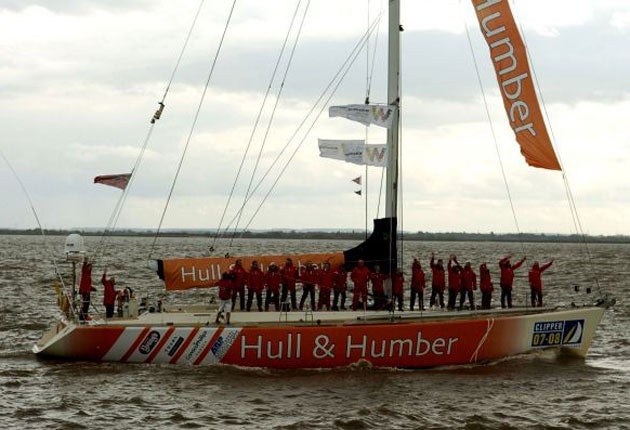Why does an NHS trust need a £400,000 yacht?
Vessel to be used to get jobless teenagers back into work

Hull's rich seafaring heritage stretches back to 1299, when King Edward I granted the port a royal charter. The city's notable maritime exports have since included a great deal of haddock and a deputy prime minister.
Now a new generation of mariners will be setting sail after the city's primary care trust unveiled a £1.35m project to buy and run a yacht for unemployed youngsters – and, in doing so, sailed into a perfect storm of criticism.
The potential purchase of the 72ft vessel has been lambasted by local politicians as "a complete waste of public money". But its supporters have leapt to its defence, describing its acquisition as a "visionary" plan to help turn around the lives of wayward youths and claiming that it could get 150 jobless teenagers back into work every year.
Health chiefs hope that the 10-week sailing programmes, which will include two weeks at sea learning teamwork, self-sufficiency, plumbing, joinery and how to eat healthily, will improve the long-term prospects of the city's disadvantaged youngsters.
The chief executive of NHS Hull, Chris Long, said that the yacht, which would cost £400,000, would account for just 0.1 per cent of the PCT's annual budget. "I said we would never sort out health problems in Hull until we sorted out the employment issues facing the city. There is an absolute link between good education, good employment and good health."
But Steve Brady, leader of the Labour group on the city council, said the spending plans were unacceptable. "In the current economic climate, I'm amazed our local PCT is even thinking about doing something like this."
While the boat would be bought by the PCT, the maintenance costs would be met by regeneration agency One Hull.
Three months ago, the Hull and Humber clipper came second in the 35,000-mile Clipper Round the World Yacht Race, crewed by a team of 10 unemployed youngsters from the region. Since then, all 10 have gone on to find work, start their own businesses or navigate back into education.
Sir Robin Knox-Johnston, who in 1969 became the first man to sail round the world non-stop single-handedly, said sailing offers a unique lifeline for young people who have lost their way: "Sail training is akin to an apprenticeship. You take these young people and make them face an alien environment. We know it is safe but they don't and they have to get over that. When they do overcome it they start to develop self confidence and belief."
Among those to take part in the race were Sonny Allott, who sailed with the clipper between Novia Scotia and Liverpool. The 20-year-old from west Hull was brought up in care following the death of his parents. "This really opened my eyes. I was amazed I was even there but I knew I had earned it," he said. He now works in London with disadvantaged youngsters.
The new health project will be called the Wilberforce Sailing Academy in honour of William Wilberforce, the leader of the movement to abolish the slave trade who was born in the city and became an independent Member of Parliament for the region. A final decision on the project is expected next month.
Join our commenting forum
Join thought-provoking conversations, follow other Independent readers and see their replies
Comments
Bookmark popover
Removed from bookmarks